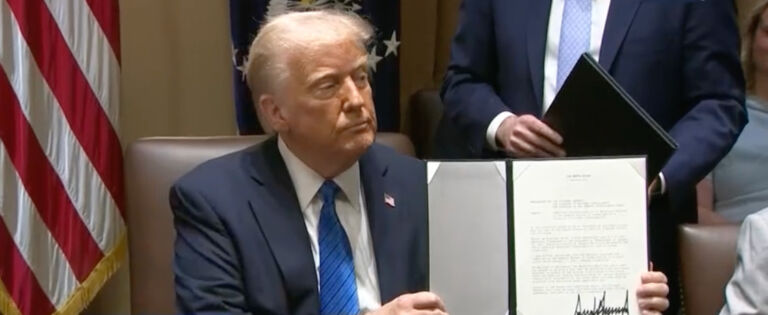Veronique de Rugy writes for Townhall.com about a significant accomplishment tied to the “one big beautiful bill.”
The “Big Beautiful Bill” accomplished many things, not all of them positive. One positive step was to repeal many of the Inflation Reduction Act’s green energy subsidies. It’s somewhat disappointing that Congress didn’t repeal all of them, as President Donald Trump had promised during the campaign. Yet it’s also somewhat remarkable to witness a genuine rollback, something that was never a given for this bill and which typically succumbs to special-interest politics.
To be clear, I want more green energy from more sources, including wind, solar, geothermal, and whatever other promising avenues innovation makes possible. However, subsidies like those in the Inflation Reduction Act are the wrong approach to achieve this goal. They distort the tax code, misallocate capital, and favor companies already in the game, to the detriment of new entrants that might bring something more transformative.
The result isn’t more abundance; it’s cronyism masquerading as climate policy. The promise to roll back the Inflation Reduction Act’s sprawling tax credits and handouts was once a central part of the GOP’s economic platform. According to a Cato Institute analysis, these were initially projected to amount to $1.2 trillion over 10 years, which is many times the projected initially cost.
The House version of the budget made a significant adjustment, with hard deadlines for wind and solar tax credits and tighter eligibility requirements geared toward projects that could begin construction within 60 days of enactment and be in service before 2029. It wasn’t perfect, but it was a genuine attempt to inject discipline into a policy that had run amok. The Senate, however, had other plans, and the reform was diluted. …
… In Washington, that’s good enough. The good news is that even this watered-down reform is expected to reduce green subsidies by approximately $500 billion over the next 10 years. That’s no small feat, especially in a town where “cutting” usually means “slightly slowing the growth of programs we already can’t afford.” It’s doubly impressive, given that the forces fighting to maintain the subsidies outspent reformers by an order of magnitude.
The post Trump’s big bill included real government rollbacks first appeared on John Locke Foundation.
Click this link for the original source of this article.
Author: Mitch Kokai
This content is courtesy of, and owned and copyrighted by, https://www.johnlocke.org and its author. This content is made available by use of the public RSS feed offered by the host site and is used for educational purposes only. If you are the author or represent the host site and would like this content removed now and in the future, please contact USSANews.com using the email address in the Contact page found in the website menu.







